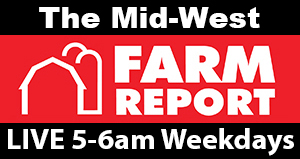
The U.S. Food and Drug Administration has released draft guidance on labeling plant-based milk alternatives. The draft guidance, “Labeling of Plant-based Milk Alternatives and Voluntary Nutrient Statement,” allows plant-based products to continue to use dairy terms despite not containing dairy, nor having the nutritional value of dairy products.
The guidance is the first draft that opens a 60-day comment period. Edge Dairy Farmer Cooperative says it will provide FDA with further feedback during the comment period.
“The co-op is looking forward to working with the FDA and Administrator Dr. Robert Califf by providing comments to express the importance of accurate labeling of plant-based milk alternatives for consumers and farmers,” says Edge President Brody Stapel.
The cooperative says it appreciates the acknowledgment from FDA that consumers generally do not understand that imitation milk products lack the same nutritional benefits as dairy milk. Due to this misconception, consumers can often miss out on critical nutrients essential to a healthy diet. FDA’s guidance recommends voluntary nutrient statements for labeling plant-based milk alternatives. The declaration must convey how the product nutritionally compares with dairy milk.
“Consumers choose milk because it is a trusted term associated with quality and nutrition. This trust has been built over generations of Wisconsin dairy farmers who take pride in producing a quality product with regulations that reflect that quality,” says Wisconsin Farm Bureau Federation President Kevin Krentz.
But FDA’s guidance would allow alternatives to continue to use the ‘milk’ label. Ag groups say this allows imitation products to ride the coattails of dairy’s good name.
“Plant-based milk alternatives are not milk,” says Krentz. “They aren’t held to the same regulations and therefore should not be labeled as milk.”
He argues the federal regulations already exist, but FDA still chose to issue guidance in conflict with its own definition, hurting Wisconsin farmers.
“If federal agencies are going to ignore their own regulations, Congress must act to force compliance and protect farmers,” Krentz says. “Wisconsin Farm Bureau is in full support of Senator Tammy Baldwin’s introduction of the DAIRY PRIDE Act, which would force the FDA to abide by their own definitions.”
In a release, U.S. Sen. Tammy Baldwin says the misguided rule will hurt America’s diary farmers and rural communities.
“Since the FDA is failing to enforce its own definitions for dairy terminology and stop imitation products from deceiving consumers, we will be reintroducing our DAIRY PRIDE Act to stand up for America’s dairy farmers and the quality products they make,” she says.
